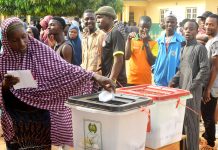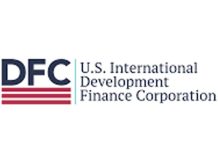The Federal Government has started making moves to boost non-oil export through its N50bn Export Expansion Facility created to protect export businesses from the effects of the COVID-19 pandemic.
The Minister of Industry, Trade and Investment, Otunba Adeniyi Adebayo, in a statement on Thursday by his Special Assistant on Media, Ifedayo Sayo, noted that the EEF aimed to safeguard jobs and de-risk the economy from shocks like COVID-19.
The minister decried the poor state of the nation’s non-oil export, saying that the economy would remain vulnerable to external shocks in absence of significant growth in its non-oil exports.
The minister who inaugurated the steering committee for the implementation of the Export Expansion Facility, noted that export growth remained critical to the diversification agenda of the federal government.
He added that the poor non-oil export had attendant ripple effects of devaluation, inflation and unemployment.
READ ALSO: Exporters Bemoan CBN’s Pre- export Requirements
He said, “Export growth is at the centre of our strategy for diversifying Nigeria’s sources of foreign exchange and reducing the vulnerability of the economy to external shocks.
“We have witnessed time and again the devastating impact that events outside our control can have on our livelihoods due to our reliance on a primary source of foreign exchange.
“The coronavirus pandemic further amplified these vulnerabilities and reminded us that if we do not grow non-oil exports, our economy remains vulnerable to external shocks and their ripple effects of devaluation, inflation and unemployment.
“However, I believe we are on the right path in addressing these concerns and have chosen the right partners for the journey.”
He said, “Its primary goal is to increase Nigeria’s export capacity in the near term and its export volumes in the medium term.
“The EEF would ensure the programme is implemented in line with the Federal Government’s objectives and for the benefit of its intended beneficiaries, approve the programme implementation plan and budget and ensure the programme is implemented on time, on budget and in accordance with agreed priorities.
According to him, the committee will approve disbursements to beneficiaries, vendors and implementation partners; approve the implementation strategy of the EEF’s projects and the target beneficiaries for each project where applicable; and review the periodic performance reports and resolve implementation challenges.”
The committee is headed by the Minister as chairman, included former MD, Fidelity Bank Plc, Nnamdi Okonkwo as vice chairman; Executive Director/Chief Executive Officer; NEPC, Segun Awolowo; Representative of the Chairman of NEC Committee on Exports, Mohammed Abubakar; President, Manufacturers Association of Nigeria, Mansur Ahmed; and Founder/Chief Executive Officer, Aisston Consulting, Suratu Umar.
Other members are Representative of the Minister of Finance, Budget and National Planning, Suleiman Audu; Director, Commodities and Export Department, Federal Ministry of Industry, Trade and Investment, Kamar Bakrin; Technical Adviser to the Minister of Industry, Trade and Investment, Ahmed Bashar; and Special Adviser to the Minister of State for Industry, Trade and Investment, who will serve as secretary.













